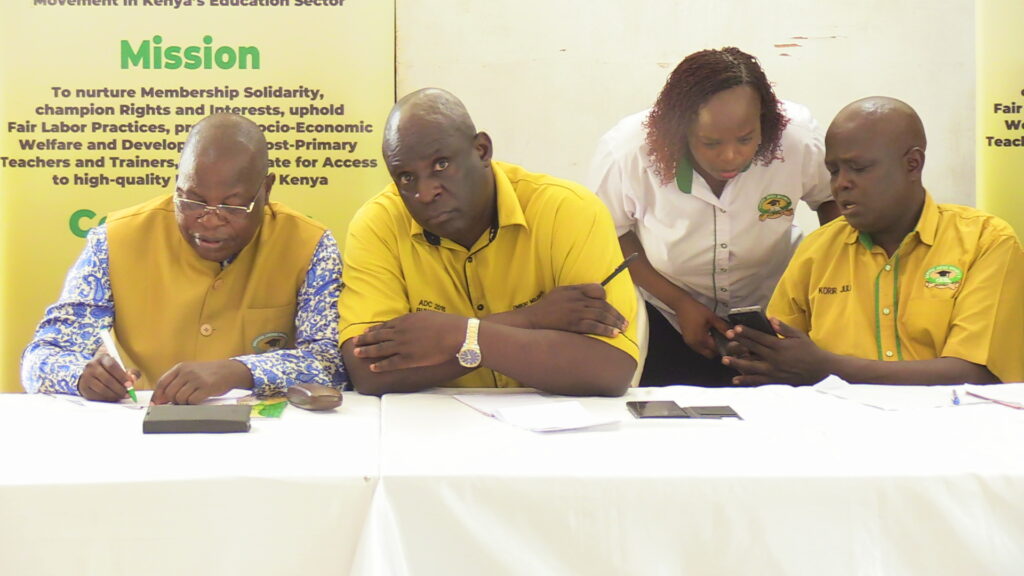The Kenya National Union of Teachers (KNUT) and the Kenya Union of Post Primary Education Teachers (KUPPET) are at odds over the autonomy of Junior Secondary Schools (JSS). This disagreement comes amid growing calls from JSS teachers across the country to be separated from primary schools, now referred to as comprehensive schools.
Speaking on Monday during KNUT’s Annual General Meeting (AGM) in Garissa, the union’s national women chair, Mercy Kiambati, said JSS teachers were being misled by individuals pushing for independence from primary schools.
“We are advising our JSS teachers not to listen to the advice of those who are misleading them because this is an already done story,” Kiambati stated. “They are domiciled in primary schools and have worked very well with head teachers in the past three years.”
She further condemned those inciting JSS teachers to demand autonomy, insisting the current arrangement under the Competency-Based Curriculum (CBC) has been successful.
KNUT Trans Nzoia secretary, George Wanjala, supported Kiambati’s remarks, explaining that the placement of Grades 7 to 9 in primary schools followed extensive consultations between education stakeholders, including KNUT and KUPPET.
Wanjala emphasized that students in these grades, mostly aged between 11 and 12, were too young for senior school environments. He noted that primary school teachers were best suited to handle their developmental needs.
He also cited the existing infrastructure in primary schools, such as classrooms previously used for Standard 7 and 8, as sufficient to host the new grades without requiring massive new investments.
On the other hand, KUPPET Secretary-General Akelo Misori, speaking during World Teachers’ Day on October 5, acknowledged ongoing efforts to resolve the standoff but did not provide a specific timeline.
The debate highlights the deepening rift between the two teachers’ unions and the uncertainty surrounding the future structure of JSS under the CBC system.

